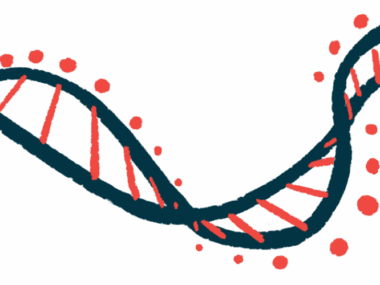AMO Pharma to start AMO-02 Phase 3 trial in adult-onset DM1
The investigational therapy is designed to treat a type of myotonic dystrophy
Written by |

AMO Pharma has announced it will conduct a Phase 3 trial of AMO-02 (tideglusib), its investigational oral therapy for adult-onset myotonic dystrophy type 1 (DM1).
The decision follows a recent meeting with the U.S. Food and Drug Administration (FDA) to review data from the Phase 2/3 REACH-CDM trial (NCT03692312). As reviewed by the agency, trial results support the development of AMO-02. In the meeting, the FDA also gave feedback on the design of the Phase 3 trial.
The study will assess the treatment’s safety and efficacy, using similar outcome measures to those that demonstrated benefits in REACH-CDM, a study in children and adolescents with congenital DM1. It is intended to support a future submission for approval of AMO-02 for the treatment of children, adolescents, and adults with DM1.
“We look forward to working with the community to advance this program as rapidly as possible. We will make an announcement regarding the start date and site locations for the adult onset DM1 study shortly,” Alan Rubino, executive chair at AMO Pharma, said in a company press release.
“We are pleased with the outcome of the productive discussions we had with the FDA regarding next steps for AMO-02 and continue to feel strongly that this innovative therapy can represent a significant advance in the treatment of patients with DM1, whether they are children, adolescents or adults,” he added.
DM1 is a type of muscular dystrophy caused by mutations in the DMPK gene, characterized by myotonia — when muscles are unable to relax after they contract — and progressive muscle weakness and wasting. The disease has a mild form, when symptoms usually appear during adulthood, and congenital DM1, when symptoms may be apparent from birth.
AMO-02 works by blocking the activity of glycogen synthase kinase 3 beta, an enzyme that is abnormally active in people with certain types of muscular dystrophy, including Duchenne muscular dystrophy (DMD) and congenital DM1.
The therapy also disrupts the accumulation of abnormally long messenger RNA molecules that clump inside cells and interfere with their normal functioning, ultimately causing the disease symptoms.
AMO-02 in development
In preclinical studies using a mouse model of DMD, treatment with AMO-02 for one month improved muscle function and the regulation of blood sugar levels. Treatment also reduced fat deposition in muscle. Benefits were observed both in the early and advanced stages of the disease.
The REACH-CDM trial tested the therapy on 56 children and adolescents, ages 6 to 16, with congenital DM1. Participants were randomly assigned to receive AMO-02 or a placebo once daily at adjusted-to-weight doses of 400 mg, 600 mg, or 1,000 mg.
Treatment with AMO-02 significantly improved patients’ walking and cognitive abilities and decreased biomarkers of muscle and nerve cell damage. Moreover, AMO-02 significantly improved results of the Multi-Domain Responder Index, which integrates measurements of motor skills, muscle strength, cognitive performance, and activities of daily living, as well as biomarker data.
AMO-02 was generally well tolerated, with no reported severe adverse events related to treatment.
“The results of the REACH-CDM Study showed measures of efficacy benefit across multiple symptom areas, and we are very excited that this clinical development program will continue to move forward,” said Hanns Lochmüller, MD, trial investigator at Children’s Hospital of Eastern Ontario, Canada.
Patients enrolled in the trial and those with congenital or childhood-onset DM1 who had not been treated are now participants in the Phase 2/3 REACH CDM-X (NCT05004129) extension study, with sites in Australia, Canada, New Zealand, and the U.S.
“We remain very hopeful that this investigational therapy can have a transformative impact on the health of patients living with this ultra-rare, severe muscular dystrophy in the years ahead,” Lochmüller added.






